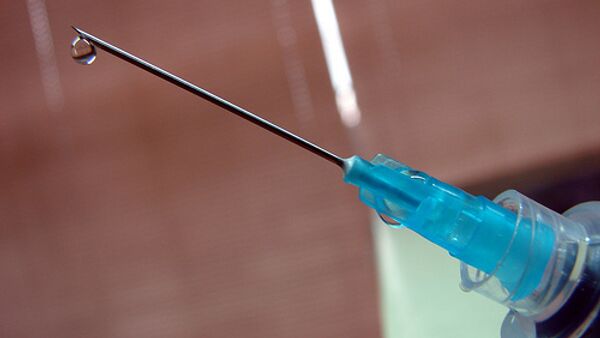MOSCOW, August 12 (RIA Novosti) – The Louisiana Department of Corrections (DOC) bought a death penalty drug from a local hospital with the intent of secretly using it for lethal injections, a report by The Lens, a non-profit news outlet based in New Orleans, said.
“On January 28, 2014 a Memorial [Hospital] pharmacist was contacted by a pharmacist from the Hunt Correctional Center Medical Unit that requested Hydromorphone (Dauladid) for a medical patient. At no time was Memorial told the drug would be used for an execution,” reads a statement issued by Matt Felder, the public information officer at Lake Charles Memorial Hospital. “There is an ethical and legal process for sharing drugs between pharmacists, and Memorial transferred the drugs accordingly,” Felder added.
Elayn Hunt Correctional Center in St. Gabriel, Louisiana bought 20 vials of Hydromorphone on January 28th, according to a DEA form submitted by the state as proof that officials purchased the drug for executions. Corrections department officials then announced they had the necessary amounts of Hydromorphone to proceed with death row inmate Christopher Sepulvado’s execution in late January. The origins of the drug became clear when the purchase was revealed as part of a lawsuit challenging the state’s lethal injection practices in a document seen by The Lens.
“Recent issues in Oklahoma, Ohio and Missouri have highlighted the national crisis surrounding lethal injection, marked by botched executions, extreme secrecy and the replacement of FDA-approved drugs with drugs of unknown sourcing and testing in new experimental combinations,” the former director of the Louisiana Coalition for Alternatives to the Death Penalty, Sophie Cull, said. Cull claimed Sepulvado’s case underscores “troubling new developments” in Louisiana’s methods of execution.
Louisiana’s DOC changed its execution protocol prior to Sepulvado’s execution, which was scheduled for February 5. On January 27, the DOC decided to allow the use of an experimental combination of the sedative Midazolam and the painkiller Hydromorphone, which was previously used in the botched Ohio execution of Dennis McGuire on January 16 of this year.
Use of Hydromorphone is a relatively new response to the EU moratorium on exporting drugs used in executions to the United States. When Louisiana was unable to refill its expired stocks of Pentobarbital, which was provided by Danish manufacturer Lundbeck before 2011, the state approved the controversial Hydromorphone-Midazolam cocktail.
Sepulvado was not executed as planned on February 5. Louisiana agreed to delay the execution for six months while it considered alternative methods. A status conference on the lawsuit is expected in November.
Sepulvado was convicted in 1993 for torturing and killing his six-year-old stepson.
Death sentences are currently at an all-time low in the United States according to the Death Penalty Information Center’s 2013 year-end report. Capital punishment is still legal in 32 American states.


